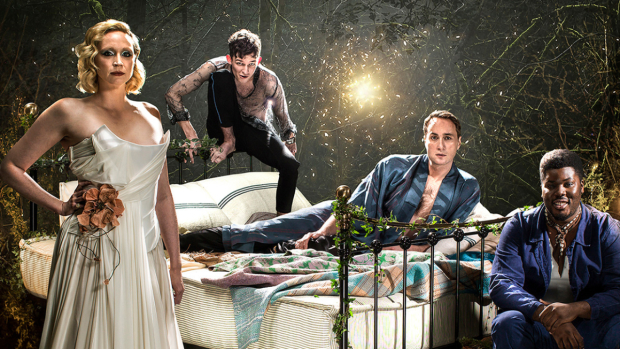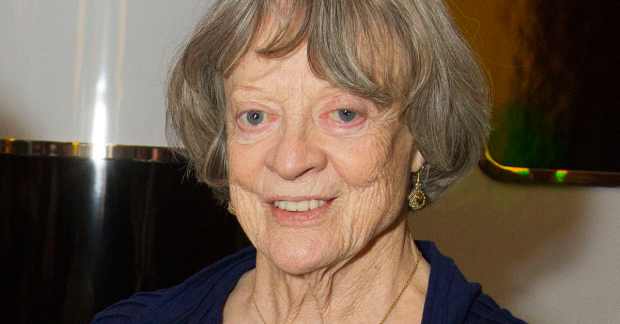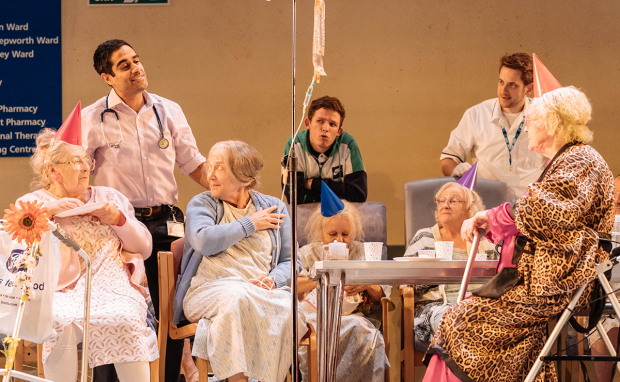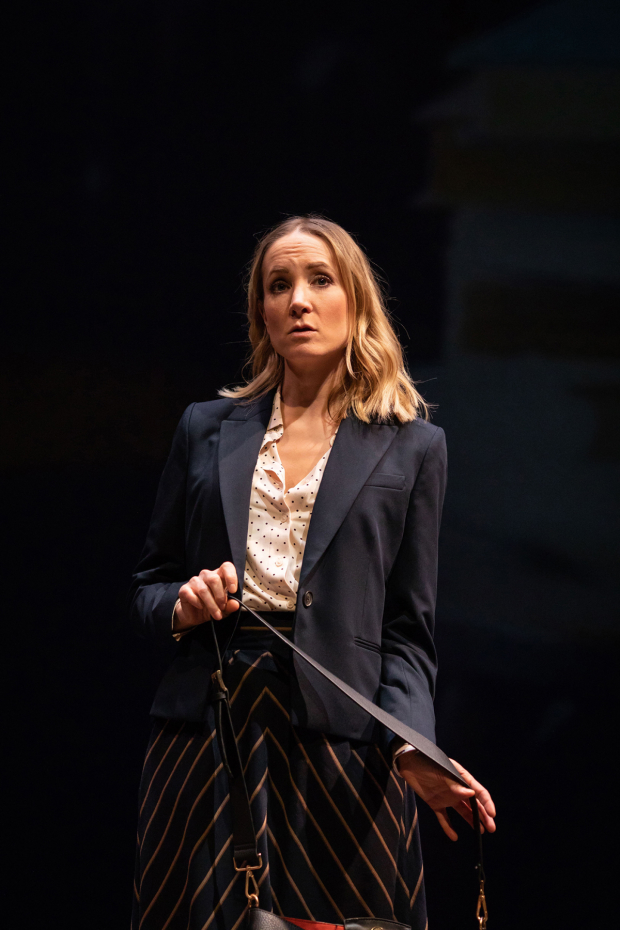Review: Alys, Always (Bridge Theatre)
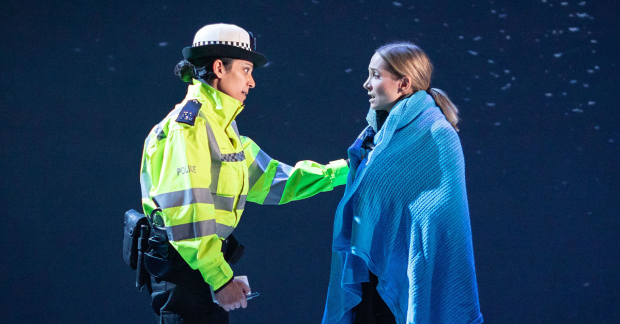
© Helen Maybanks
There is nothing wrong with Alys, Always, Lucinda Coxon's smooth adaptation of a popular and clever novel by Harriet Lane, centred on a mousey assistant on a newspaper books desk whose life begins to change when she witnesses a fatal car accident. But I found it very hard to like.
Take the first exchange between the journalist, Frances, and the dying stranger. "I'm Alys. With a y," says a disembodied voice, introducing herself. "I'm Frances. With an e," comes the reply. That short piece of dialogue tells you everything you need to know. This is a smart play about smart people, who worry about spelling. But just as the newspaper office in which Frances works (The Questioner) feels superficially well-observed but not quite real, so the characters feel like ciphers rather than living, breathing human beings.
The plot is what holds you. As Frances (Joanne Froggatt) suddenly realises that Alys is the wife of the famous novelist Laurence Kyte (please note unusual spellings all round) she also begins to recognise that her encounter with the family – who turn to her for comfort – represents an opportunity to escape a life she hates. Gradually, she assumes the qualities of the legendary Alys, using her recipes, stealing her clothes – and starts to manipulate her connection with the famous literary family to advance her own career.
The twists and turns of this mission are beautifully captured in a performance from Froggatt that morphs from the nervous glances and wide eyes of the perpetually put-upon, to the growing assurance of someone seizing her opportunities with both hands and most of her teeth. She is our guide to this transformation. As in the novel, her inner monologue illuminates and sometimes contradicts her outward behaviour and Froggatt manages to portray both sides of her character, sometimes simultaneously.
Her journey is fluently tracked by Bob Crowley's simple yet profoundly effective setting which uses Luke Halls' video designs to propel the action from country house to London flat, from beach to garden. Nicholas Hytner's direction is also as assured as you would expect, though the nuances of family life seem to escape him, and the scenes with the Kyte family are among the least convincing. Some performances (which include some doubling) are slightly over-blown.
Robert Glenister, though, is a relaxed and convincing presence as Laurence, a man so blinded by his long-held belief in his own effortless rightness and superiority that he is wrong-footed by someone who sees him clearly enough to play him at his own game.
It is all quite enjoyable, but it feels incredibly lightweight. The play and the production reminded me of the whole idea of the boulevard entertainment, those light soufflés of theatre that helped to pass a night out without making anyone think any differently about anything. The tone is darker here, the psychology more twisted, but there is nothing really to disturb or disrupt.
I have seen far worse productions that tried to achieve more and I liked them better for it. With its elegant cello interludes, and its careful story-telling, this is theatre as an after-dinner mint, bland and inoffensive. And I wanted more to get my teeth into.



